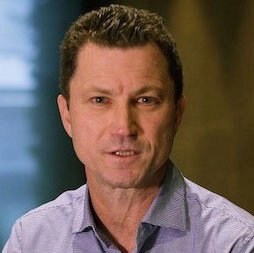Building portfolios using quantitative signals
James Gruber chats with Andrew Francis and David Walsh from RQI Investors.
James Gruber: Has passive investing changed the way you invest across time? For instance, with value, has it increased the opportunities or decreased them?
Andrew Francis: Look, I think, what it has done is probably, maybe the duration of some cycles is longer than it might have been in the past. And you think of the weight of money going into some parts of the market can mean that that mispricing might stay mispriced for slightly longer than it might have in prior years. But there's still long-term main reversion. You know what, in 2010, BHP as stronger for longer, as a resource super cycle, China was going to the moon and back, and you know what, the cap weighted index was putting more and more money into BHP at that point of time. I think it got up to $45, $50 at that point of time as 12%, 14% of the Aussie market. And everyone would say, but you're underweight BHP. And I said, yes, we are underweight BHP. And they said, well, you will never be overweight BHP. And I said, well, I don't know. And that was the truth.
But you know what, it wasn't a resource super cycle. China wasn't stronger for longer. And we saw BHP share price go from that $45 down to $15. And you know what happens at $15? Charlie Munger says that the share market is the only market on the earth that no one wants to buy it when it's on sale. And the point of view is you had maximum amount of money if you're invested in a cap weighted index in BHP at the peak of the market. And when it's down at $15 and it's cheap, no one wants to buy it. And it's half the index weight. Well, you know what, when you're weighting by fundamentals, our weight didn't change considerably. So, we're very underweight BHP when it was at $45, and we were rebalancing back to company fundamentals, wasn't screening as a value trap, rebalancing, rebalancing. And then when it was down at $15, we were largely – our weight hadn't changed significantly, but the market cap weight had changed significantly. And all of a sudden, we're very overweight BHP. So, we've benefited from the mean version on the way down, then $15 and on the way up as well. And that highlights the value process in that one name. And we can give countless examples as well.
Gruber: We'll get David in here. Systematic investing, it looks for edges in things or asymmetries in data and markets. Do you find that those asymmetries persist, or do they evolve, and you have to change into other asymmetries over time?
David Walsh: Yeah, so a lot of good ideas can be arbitraged out over time. This is sort of well-known in the market that certain things come on and they're researched and then there's more and more people tend to chase those ideas are arbitraged out. We do see that. But the question you have to ask in the first place is why do these inefficiencies exist? And we believe there are some three central reasons why they do that. There's limits to arbitrage that people cannot arbitrage fast enough because there are limits in terms of costs, in terms of opportunity sets and so on. There are behavioral biases. People behave in certain ways. They underreact to news. They tend to oversell or don't sell right or buy at wrong times. And there're information complexity, those sorts of things in terms of the vast amount of information flowing at the moment has only increased recently. So those underpin a lot of the inefficiencies in the market. They're not changing but getting worse in a lot of ways.
So, the question then is not does a particular insight get arbitraged out. It's can you exploit one of those three ideas in the way in which you generate alpha? So it might be that one particular idea gets arbitraged out, but an idea which replaces it, which has a bigger barrier to entry, is more complex, remains. So, the trick then in your research and the way you build the models is to capture those ideas in a more efficient way. So, the fact that these ideas can be arbitraged out is more a mechanism of the way in which the market prices it. It could be the data that's available becomes more commoditized. It could be the research becomes more popular into academic publications. Those sorts of things cause it. But the underlying fundamentals to why markets are inefficient don't really change. In fact, in some sense, they're getting worse.
Gruber: And how are you going about that with AI and trying to implement that in your firm going forward?
Walsh: Yeah, we have a really strong team that understands a lot of this work in terms of natural language processing and various machine learning applications. But we're really very hesitant to put something in unless the insight is right. So, the insight needs to be there. The machine learning AI natural language processing is not the insight. That's not the idea. It's a tool to apply a certain level of insight. And maybe you can have insights or see things going on the data you can't see normally without applying some kind of other tool like a machine learning or natural language processing, deep learning tool of some sort that will give you those. So, we have approaches which use natural language processing in text processing for alphas. We use machine learning in the way that we think of selecting peers between groups, how do momentum works between peers, how do you choose a peer group, those sorts of things require machine learning tools. But the idea is what comes first.


